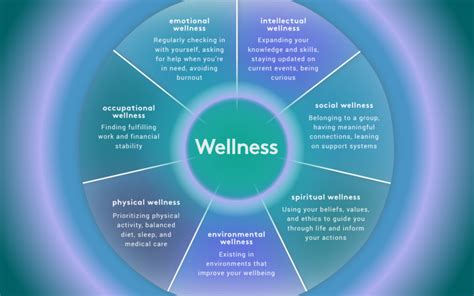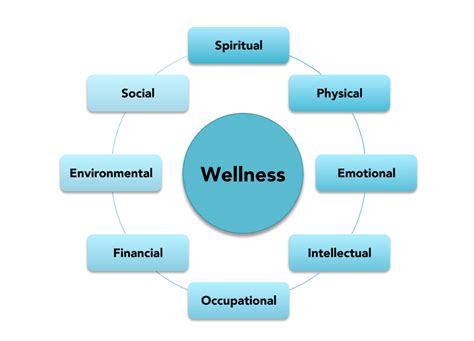Balancing the demands of parenting while maintaining your own wellbeing is a challenge, especially for stay-at-home parents. While the focus is often on caring for the family, it’s equally important to prioritize self-care to sustain your physical and mental health. This ultimate guide offers practical tips and tricks to help you establish a self-care routine that fits your busy lifestyle. From mental health and mindfulness practices to physical fitness, nutrition, and time management strategies, this guide covers all aspects of self-care. You’ll also discover how to build a supportive network and balance your personal hobbies with parenting duties, ensuring a healthier and happier you.
Come join domgiz.com in exploring this topic extensively.
1. Creating a Self-Care Routine
Establishing a self-care routine is essential for stay-at-home parents to maintain balance and avoid burnout. Start by setting aside a specific time each day dedicated solely to your wellbeing. This could be as simple as a quiet morning ritual with a cup of tea, a few minutes of meditation, or an evening bath to unwind after the kids are asleep. Consistency is key—regularly scheduled self-care helps reinforce its importance in your daily life.
Next, identify activities that recharge you mentally, physically, and emotionally. This could include reading, journaling, exercising, or practicing mindfulness. Tailor your routine to fit your interests and needs, ensuring it feels like a treat rather than another obligation. Remember, self-care isn’t just about pampering yourself; it’s about doing whatever keeps you feeling your best.
It’s also important to be realistic and flexible. As a stay-at-home parent, your schedule may change unexpectedly, so be open to adjusting your routine as needed. Even on the busiest days, try to carve out a few minutes for self-care, whether it’s a quick walk outside or deep breathing exercises.
Finally, communicate your self-care needs with your partner or support network, ensuring they understand its importance. This collaboration will help you consistently prioritize your wellbeing without guilt or interruption.

2. Mental Health and Mindfulness Practices
Maintaining mental health is crucial for stay-at-home parents, who often face the pressures of constant caregiving. Incorporating mindfulness practices into your daily routine can significantly reduce stress and enhance your overall well-being. Start with simple breathing exercises or short meditation sessions to center your mind and relieve anxiety. These practices can be done in just a few minutes, making them easy to integrate into even the busiest of days.
Mindfulness is also about being present in the moment. Try to focus fully on whatever task you’re doing, whether it’s playing with your children, preparing a meal, or taking a walk. This awareness helps prevent your mind from being overwhelmed by worries or to-do lists, allowing you to enjoy each moment more fully.
In addition to mindfulness, prioritize mental health by recognizing when you need a break and allowing yourself time to rest. Engage in activities that bring you joy and relaxation, such as listening to music, engaging in a hobby, or simply taking a few moments to yourself.
If you find yourself feeling persistently overwhelmed or anxious, don’t hesitate to seek support from a mental health professional. Therapy or counseling can provide valuable tools for managing stress and maintaining a healthy mindset, helping you stay resilient and positive as you navigate the challenges of parenting.

3. Physical Fitness and Exercise Tips
Staying physically active is vital for the overall health and energy levels of stay-at-home parents. Regular exercise not only strengthens your body but also boosts your mood and reduces stress. You don’t need a gym membership or hours of free time to stay fit—incorporate physical activity into your daily routine in small, manageable ways.
Start with simple exercises at home, such as stretching, yoga, or bodyweight exercises like squats and push-ups. These can be done in short bursts throughout the day, even during nap times or when your children are occupied. Consider taking daily walks with your kids, turning playtime into an opportunity to get moving.
If time allows, explore online fitness classes tailored for parents, offering flexibility to exercise at your own pace. Remember, consistency is key, so aim for regular, short sessions rather than infrequent, longer workouts. Prioritizing physical fitness not only helps you stay strong and healthy but also sets a positive example for your children.

4. Healthy Eating and Nutrition for Parents
Healthy eating is fundamental for maintaining energy and wellbeing, especially for stay-at-home parents who often juggle multiple responsibilities. Focus on a balanced diet rich in whole foods, including plenty of fruits, vegetables, lean proteins, and whole grains. These foods provide essential nutrients to keep you fueled throughout the day.
Meal planning can be a game-changer, helping you prepare nutritious meals without the stress of last-minute decisions. Consider batch cooking or preparing ingredients in advance, making it easier to throw together healthy meals even on busy days.
Don’t forget to stay hydrated—drinking plenty of water is crucial for maintaining energy levels and concentration. Keep a water bottle handy to remind yourself to sip throughout the day.
It’s also important to listen to your body’s hunger cues and avoid skipping meals, as this can lead to energy crashes and irritability. Prioritizing your nutrition not only supports your health but also equips you to better care for your family.
5. Time Management Strategies
Effective time management is essential for stay-at-home parents to balance the demands of parenting with personal self-care. Start by organizing your day with a flexible schedule that prioritizes both your responsibilities and your wellbeing. Identify the key tasks you need to accomplish and allocate specific times for each, including moments for self-care, exercise, and mental breaks.
Using tools like planners or digital apps can help you keep track of daily activities and reduce the mental load of remembering everything. Break larger tasks into smaller, manageable steps to avoid feeling overwhelmed, and focus on one thing at a time to maintain efficiency.
It’s also important to set realistic expectations. Understand that some days may not go as planned, and that’s okay. Build in some buffer time to accommodate unexpected events or delays.
Delegating tasks is another valuable strategy. Don’t hesitate to ask for help from your partner, family, or even older children for age-appropriate chores. Sharing the load ensures that you’re not overextending yourself, allowing you to maintain a more balanced and manageable schedule. By effectively managing your time, you can create space for the things that matter most, including your own health and happiness.
6. Building a Support Network
Building a strong support network is crucial for stay-at-home parents to maintain their wellbeing and prevent feelings of isolation. Start by connecting with other parents who understand the unique challenges you face. This can be done through local parenting groups, online communities, or even informal meet-ups at parks or playgroups. Sharing experiences and advice with others in similar situations can provide emotional support and practical tips.
Don’t underestimate the importance of maintaining relationships with family and friends. Regularly reaching out for a chat or a visit can help you feel connected and supported. It’s also beneficial to establish a close relationship with your partner or a trusted family member, someone you can rely on when you need a break or help with childcare.
Consider expanding your network to include professionals who can offer specialized support. For example, a therapist can provide guidance on managing stress and mental health, while a fitness instructor or nutritionist can help you stay on track with your physical wellbeing goals.
Remember, asking for help is not a sign of weakness. Whether it’s a listening ear, advice, or practical assistance, having a strong support network can make a significant difference in your ability to thrive as a stay-at-home parent.
7. Balancing Personal Hobbies and Parenting Duties
Balancing personal hobbies with parenting duties is essential for maintaining a fulfilling and well-rounded life. Start by identifying activities that you’re passionate about and make time for them within your schedule. Even short, regular sessions of your hobby can provide a significant boost to your mood and creativity.
Integrate your hobbies into your daily routine by finding moments when you can engage in them without impacting your parenting responsibilities. For example, if you enjoy reading, set aside time during your child’s nap or bedtime. If crafting is your passion, involve your children in simple projects to combine quality time with personal interests.
Setting boundaries is also crucial. Clearly define when you are focusing on your hobbies and when you are dedicated to parenting. Communicate this balance with your family to ensure they respect your personal time.
Lastly, don’t be too hard on yourself if you can’t always balance perfectly. Flexibility is key, and finding small ways to indulge in your interests will contribute to your overall h
Prioritizing self-care is vital for stay-at-home parents to maintain balance and overall wellbeing. By creating a routine, practicing mindfulness, staying physically active, and managing your time effectively, you can enhance both your health and happiness. Building a supportive network and balancing personal hobbies with parenting duties further contributes to a more fulfilling life. Remember, taking care of yourself benefits both you and your family.
domgiz.com

